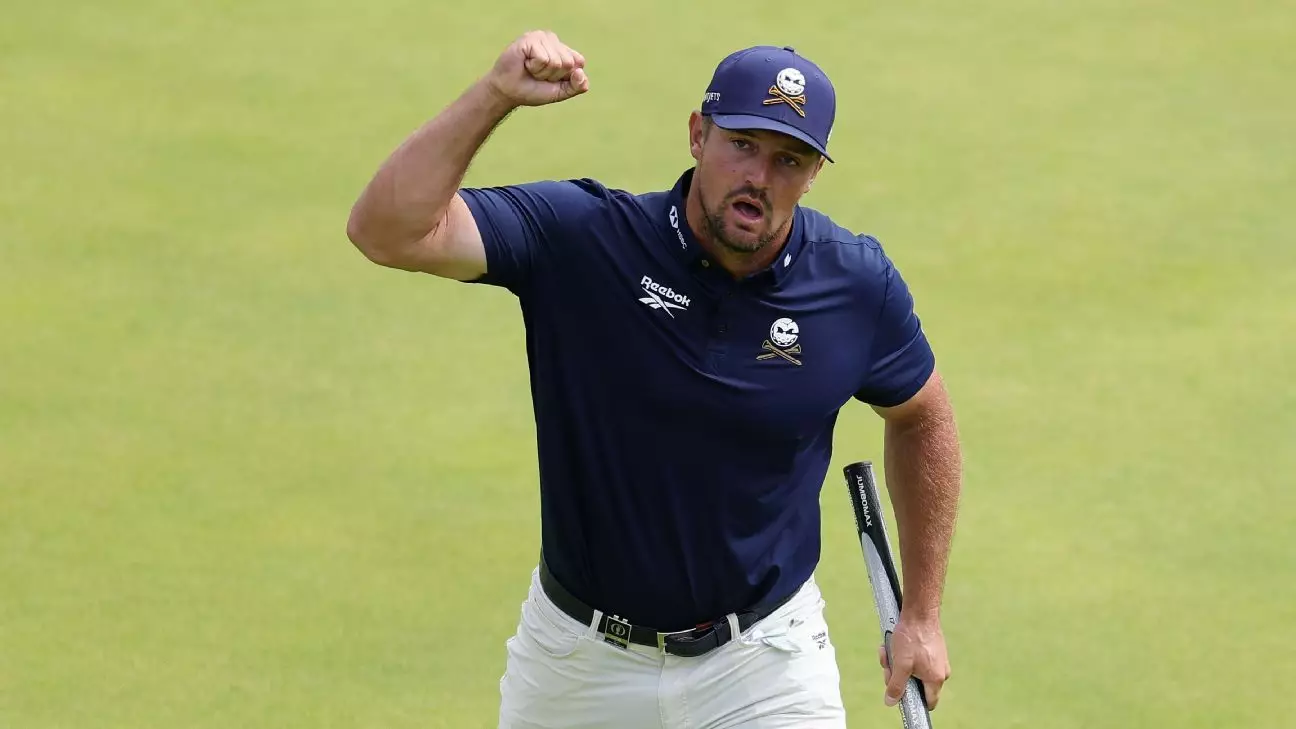Bryson DeChambeau’s journey through the latest major championship exemplifies much more than just golf. It’s a reflection of resilience, the importance of mental toughness, and the relentless pursuit of excellence—even when initial setbacks threaten to derail everything. Starting with a discouraging 78, his performance seemed to signal that perhaps the tide was turning against him. Yet, through unwavering dedication and discipline, DeChambeau transformed that bleak beginning into a series of commendable rounds under par, culminating in a stellar 64 on the final day. This narrative underscores that true competitors don’t let adversity define them; instead, they harness it to ignite their drive, fundamentally challenging notions of talent and perseverance.
His ability to rebound demonstrates that success in sports—and life—is often dictated by mental fortitude as much as physical skill. DeChambeau’s statement about favoring “fair conditions” reveals his appreciation for a level playing field, rooted in integrity and respect for the game. It’s a sentiment that echoes beyond golf: fairness fuels genuine competition. His turnaround, therefore, is symbolic of embracing challenges, staying focused in the face of obstacles, and ultimately, overcoming them—traits that are invaluable in any arena where excellence is sought.
Implications for the Ryder Cup and the Role of Leadership
DeChambeau’s recent surge underscores his importance as a potential Ryder Cup contender, emphasizing the significance of mental resilience in team competitions. His rise from near disqualification in the first round to a top-10 finish reinforces his credentials—and sends a clear message to selectors: resilience and adaptability matter just as much as raw skill. Being in contention for the prestigious team spot is not solely about statistics; it’s about character, grit, and the capacity to inspire others.
What’s particularly illuminating is DeChambeau’s perspective on leadership within the team. His comments about respecting individual strengths and letting players shine suggest a mature understanding of team dynamics. In a sport often characterized by individual achievement, his insights into fostering an environment where players are free to excel individually, without undue pressure, promote a healthy, supportive team culture. This mindset is vital if the U.S. team aims to succeed consistently on the international stage, especially against formidable European opponents.
Furthermore, his acknowledgment of past losses and the collective fatigue underscores a critical aspect of competitive sports: resilience isn’t just about bouncing back from a bad round; it’s about enduring a cycle of ups and downs. This perspective urges the broader sporting community—fans, administrators, and players alike—to embrace setbacks as opportunities for growth rather than as insurmountable failures.
Leadership and Unity in a Fractured Sports Environment
The role of Keegan Bradley as captain, and DeChambeau’s observations about his leadership efforts, shed light on the importance of emotional intelligence in team success. Bradley’s efforts to motivate his teammates—highlighted by motivational gestures and fostering camaraderie—are vital in an era where team unity can be as pivotal as individual talent. His consideration whether to serve as a playing captain reflects a pragmatic approach: leadership is fluid, and adaptability is a sign of true strength.
DeChambeau’s appreciation for Bradley’s efforts points to a broader desire within the team for authenticity, support, and shared purpose. It’s a reminder that sports are not just about individual prowess but also about collective effort and mutual respect. These qualities foster an environment where players can thrive under pressure, knowing they are part of something greater than individual achievements.
In challenging times, such as the persistent European dominance in the Ryder Cup, it is this resilient, collaborative spirit that can tip the scales. The American team’s future hinges on embracing both individual excellence and collective determination—an ethos exemplified by DeChambeau’s inspiring comeback and his insightful views on team dynamics. Only through cultivating such resilience and unity can they hope to challenge and ultimately change the course of their international rivalry.


Leave a Reply